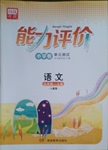题目内容
A man noticed his father alive on television — five years after he thought he had cremated(火化) him. A body discovered three years after his disappearance in 2000 was thought to be the pensioner (a retired person), but it’s now emerged(显出) it wasn’t.
When John Delaney disappeared, he was spending much of his time living outside, and sleeping on the streets. He was last seen in a hospice(收容所) in Manchester. His family searched the streets of the city for him but had no luck. So when a badly-rotten body was found in the grounds of the Manchester Royal Infirmary in 2003, wearing similar clothes, police believed it was Mr Delaney and his family held a funeral.
But earlier this year his son, John Renehan, saw a picture of his father on a BBC programme.
An appeal was being made for anyone who knew the man — who had memory loss—to give information.
John Renehan:
Well I knew at that very moment that was my dad. I knew at that very moment. Obviously his face, it was a bit changed, but I just knew at that very moment that was my dad. It emerged that John Delaney had been living in a care home for the last eight years.
Police have admitted they made mistakes and their enquiries were insufficient. Mr Delaney’s son now wants to know the identity of the man he cremated — thinking it was his father.
1.John Renehan cremated his “father” .
A.in 2003 B.in 2000 C.in 2005 D.in 2008
2.What mistake did police make?
A.They couldn’t find Mr Delaney as soon as possible.
B.In 2003, they took a badly-rotten body for Mr Delaney.
C.They didn’t give any information to John Renehan.
D.They made John Renehan cremate the rotten body.
3.The most probable reason why Delaney disappeared was that .
A.he had memory loss. B.his family disliked him
C.he liked to live outside D.he met with a friendly family
4.It can be inferred from the passage that Delaney .
A.has recovered his memory
B.often quarrelled with his family
C.loitered(游荡) in the streets for 5 years
D.was once a man with luck
5.Which of the following is the best title?
A.A Badly-rotten Body B.Missing Body
C.Missing Father D.Dead Father
1.A
2.B
3.A
4.D
5.C

 能力评价系列答案
能力评价系列答案 唐印文化课时测评系列答案
唐印文化课时测评系列答案 导学与测试系列答案
导学与测试系列答案One night last February, a seventeen-year-old Duffy drove home along a winding road, he saw a strange light thrown against the tree. “I knew it wasn’t the moon”, he said. “I drive this road all the time and I notice little things out of place.”
Duffy stopped his car and got out to examine. Below him far down in the deep valley lay a broken car with its headlights on. Thirty minutes earlier, a man had driven off the edge of the road, which has no guardrail. His car fell and rolled end over end, landing on its top more than two hundred feet below.
Duffy rushed to call for help, then returned and got down to reach the injured driver. Snow covered the valley and the temperature was below freezing. After struggling back up the cliff, Duffy took off his jacket and shirt and wrapped the injured man in time, along with the blankets from his car.
Life-saving deeds are starting to become usual action for Duffy, the oldest of seven children. When he was 12, he saved his ten-year-old brother from drowning. Two years ago, his three-year-old sister ate rat poison, and Duffy cleaned out her mouth, make her drink milk to protect her stomach and called doctors.
“We have tried to teach the children good values, and it looks like we have got some reward for it.” His father says.
1. The strange light came from ________.
|
A.The bright moon. |
B.Duffy’s car. |
|
C.The broken car in the valley |
D.an unknown place |
2. The phrase” landing on its top” means the car lay_________.
|
A.on the top of the cliff |
B.with its wheels upward |
|
C.with its head upward |
D.on the road as usual |
3.From the above article, we can see Duffy has saved ________ at least.
|
A.two |
B.three |
C.four |
D.five |
4. “We have tried to teach the children good values” may probably mean Duffy’s parents often tell their children_________.
|
A.to help people in danger |
B.how to save people’s lives |
|
C.to remember the value of the car |
D.how to do business |